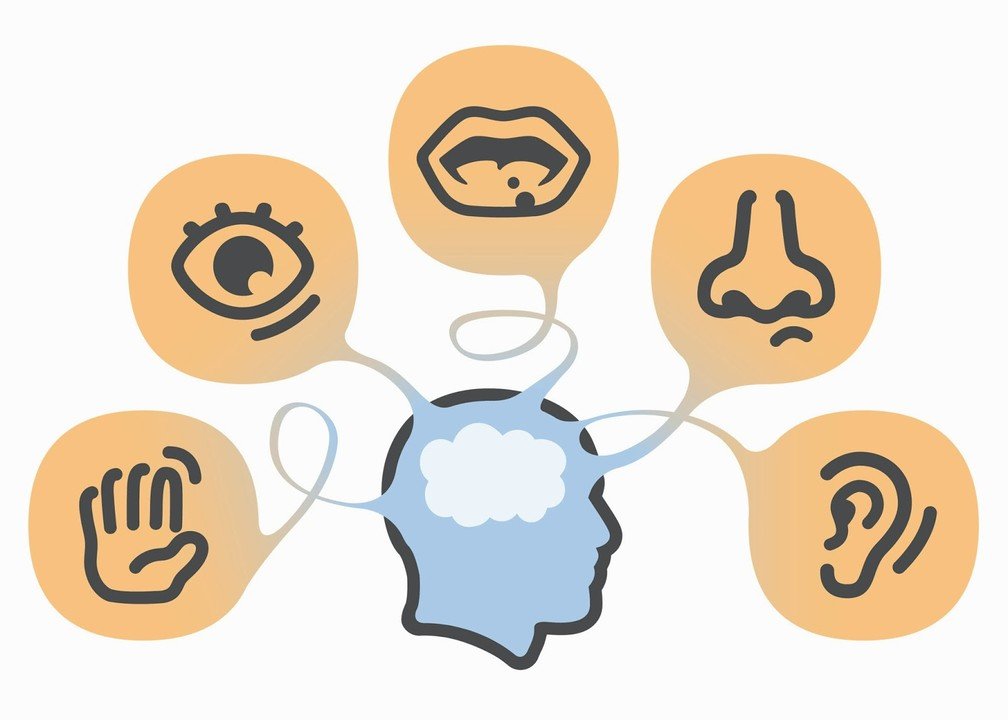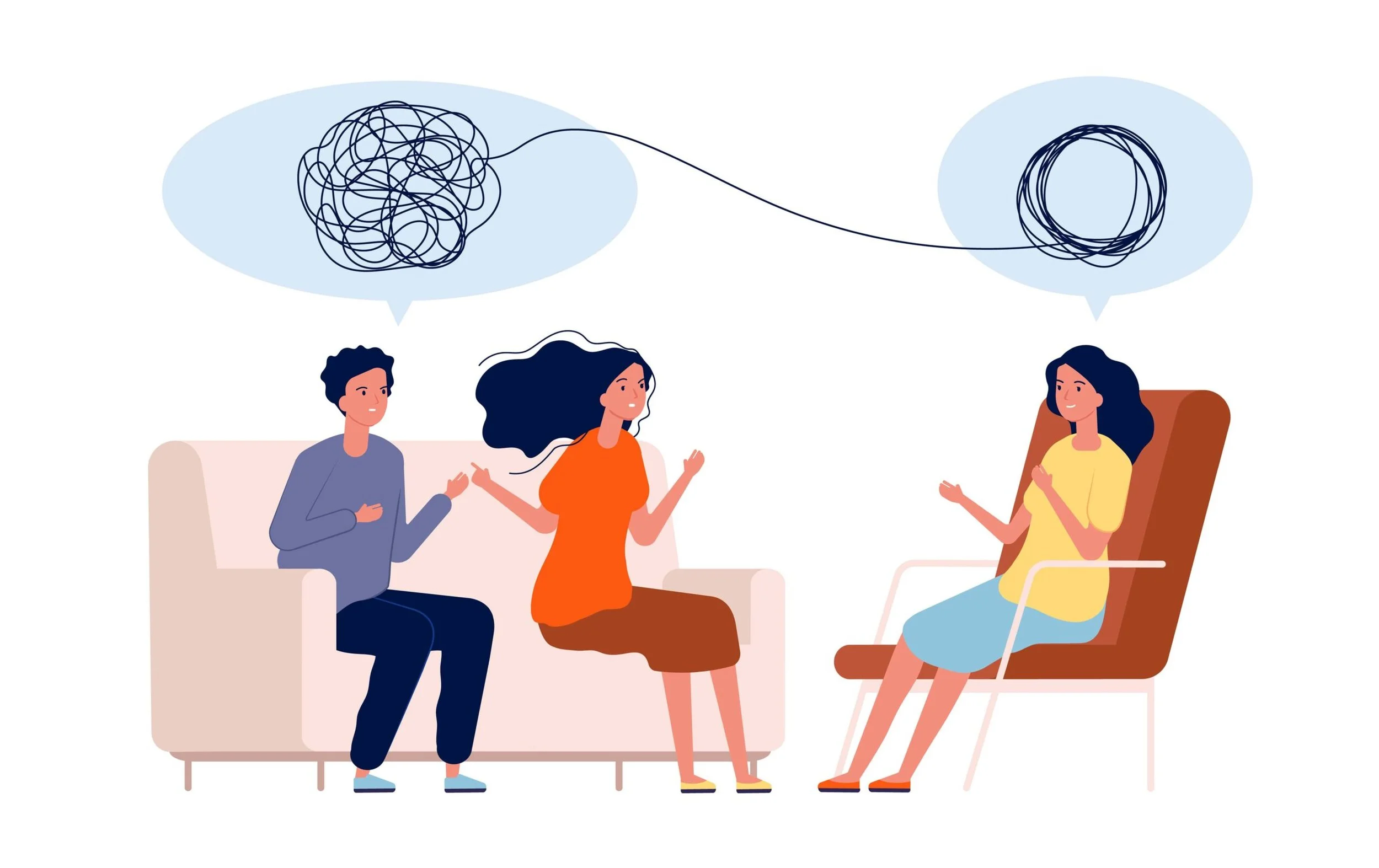Life is full of challenges, responsibilities, and unexpected twists—and it's completely normal to feel overwhelmed from time to time. But how do you know if what you're experiencing is everyday stress… or something more like anxiety?
Read MoreIn any relationship, communication is key—but in couples therapy, active communication becomes the foundation for healing, understanding, and growth. If you've ever felt like your partner isn’t hearing you, or if conflicts spiral without resolution, this concept could be the game-changer you’ve been looking for.
Read MoreYou don’t need to have it all figured out. Your first therapy session is simply a starting point—a chance for you and your therapist to get to know each other and begin building a relationship based on trust, safety, and understanding.
Read MoreIn recent years—especially since the pandemic—one of the most common questions I hear from new clients is: “Does online therapy really work?” As a therapist practicing in the heart of Los Angeles, where schedules are packed and traffic is relentless, any skepticism is completely understandable. So let’s unpack this.
Read MoreADHD, or Attention-Deficit/Hyperactivity Disorder, doesn't just affect focus and organization—it can also have a deep and lasting impact on romantic relationships. If you or your partner has ADHD, you may have noticed patterns of miscommunication, emotional disconnect, or recurring conflict that seem hard to break.
Read MoreAs a practice, we place a high value on meaningful and authentic relationships. Over the years, this effort has naturally evolved into finding and creating spaces for genuine community. These efforts extend into all kinds of relationships, including inter-professional networks, local neighborhood collaborations, training and workshop offerings, low-fee/easy-entry therapeutic offerings…
Read MoreAt Spaces, we’ve worked with couples across cultures, stages, and struggles and the decision to seek therapy often represents both a risk and an act of courage. Therapy is not simply a place to “fix” what feels broken—it’s a place to understand, to reveal, to question, and, sometimes, to redefine. So, how do you know when it’s time?
Read MoreChoosing a therapist is a deeply personal journey, and finding the right match can be crucial to the success of your therapy experience. A good therapeutic relationship isn’t just scheduling sessions—it’s about building a trusting, comfortable, and productive partnership.
Read MoreVergence is a technique that was developed out of a type of therapy called brainspotting. It uses your changing eye movements to help reduce anxiety and panic symptoms.
Read MoreGrounding is a part of mindfulness in which you are directing your thoughts away from distressing thoughts/experiences and guiding it toward the present. This can be particularly helpful when feeling overwhelmed by certain thoughts or emotions. Grounding techniques are designed to help individuals dealing with trauma, panic attacks, or other intense emotional experiences.
Read MoreRelationships require work. They ebb and flow depending on life transitions, (ie. changes in work, additions to the family, grief, relocating to a new place etc.) and it can impact the relationship or surface previous issues that may not have caused conflict/distress in the past. Each couple has their own timeline for how and when they might find themselves seeking out couples therapy, but it can be helpful to know what to expect.
Read MorePlay therapy is a widely used therapeutic method that capitalizes on a child’s natural curiosity and propensity toward play to help uncover and address underlying emotions and psychological distress. There can be misconceptions about how play can be used therapeutically. Here are some common myths about play therapy as well as the reasoning behinds its effectiveness.
Read MoreApril marks Autism Acceptance Month, a time to celebrate and raise awareness for the autism community. Autism spectrum disorder (ASD) is a complex developmental disorder that affects how individuals interact and communicate with others. However, it is important to note that autism is a spectrum, and each person’s experience of autism is unique.
Read MoreHave you heard of the invisible mental load? Also called the hidden load, in hetero cis relationships, the invisible mental load is a term for the unseen but heavily felt labor involved in managing a household and family, which typically falls on women's shoulders. Here are a few examples of ways that women are impacted by this family dynamic…
Read MoreWhat do you think of when you hear the word “creativity”? Do you think of painting? Fashion? Sculpting? Writing? Music? Graphic design? Cake decorating? Maybe your first thought when you hear the word “creativity” is that you aren’t a creative person…
Read MoreGrief is defined as “deep sorrow, especially that caused by someone's death.” This definition, although technically true, doesn’t quite reflect the magnitude of grief. It fails to capture the completely overwhelming feelings of loss, emptiness, and despair that accompany grief. We all go through grief at one stage of life or another, and it's a universal experience that we can find connection in.
Read More

















